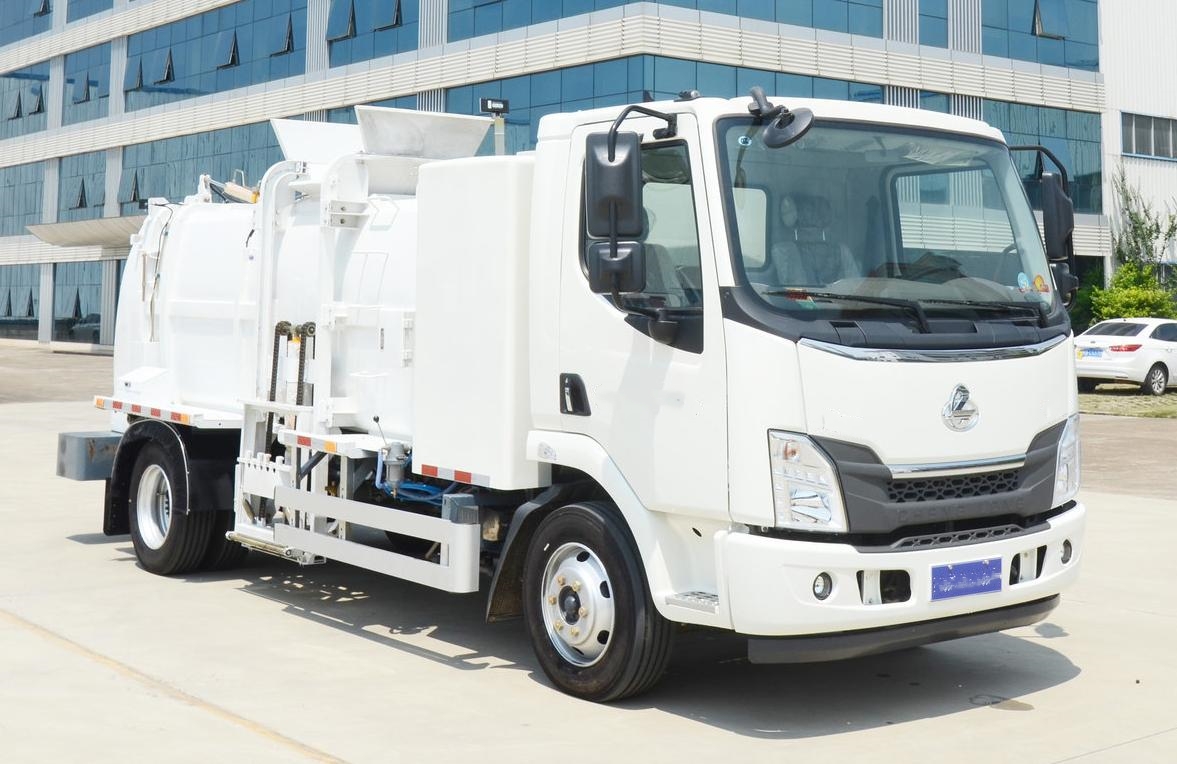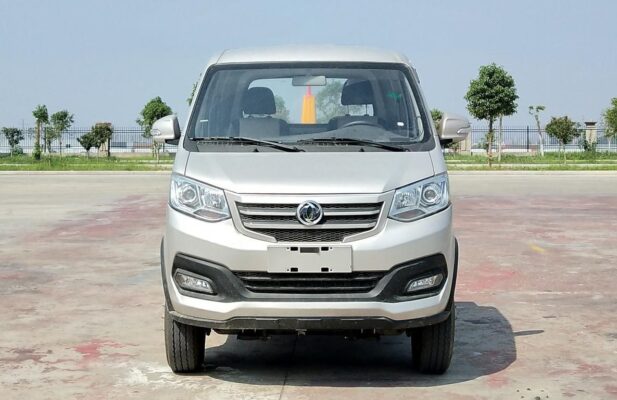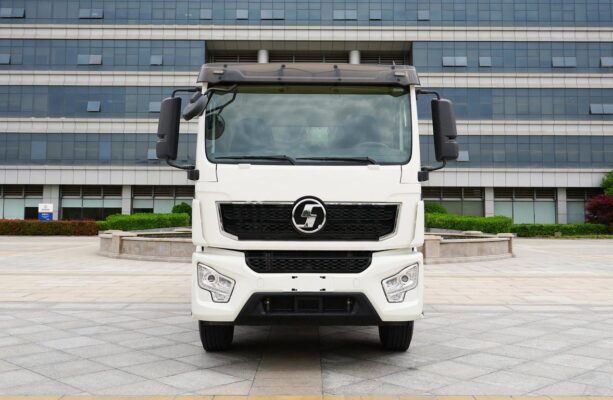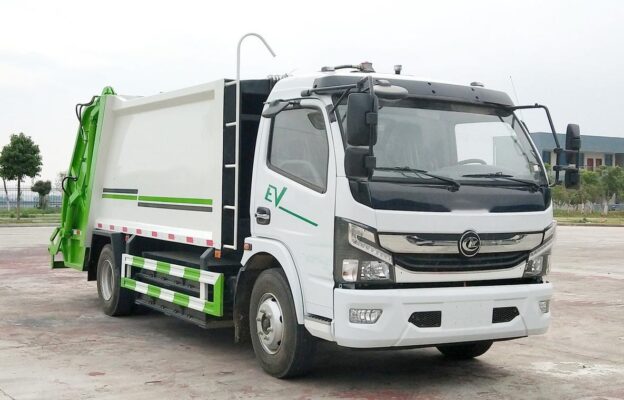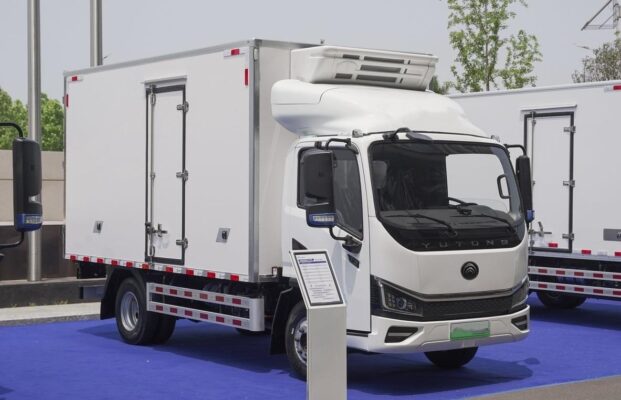Новини електричних вантажівок
Why Do Electric Pickup Trucks Have Limited Speed
Electric pickup trucks are often perceived as less capable than their gasoline counterparts, especially regarding speed and performance. Several factors contribute to this impression, ranging from technical limitations to infrastructural challenges. This article delves into the reasons why electric pickups tend to have limited speed and examines the broader implications for their development and market presence.
1.Factors Contributing to Limited Speed in Electric Pickup Trucks
- Shorter Range:
One of the most significant limitations for electric pickups is their range. While advancements in battery technology have improved the distance electric vehicles can travel on a single charge, electric pickups generally still lag behind gasoline trucks in this area. The limited range restricts their long-distance driving capabilities, which can impact speed perceptions. Drivers may feel compelled to drive more conservatively to conserve battery life, particularly on longer trips. The concern over running out of battery power can lead to a more cautious driving style, effectively limiting the vehicle’s speed. - Insufficient Charging Infrastructure:
The availability of charging stations plays a crucial role in the practicality of electric pickups. While gasoline vehicles can be refueled at numerous gas stations within minutes, electric vehicles face a different reality. Charging stations are not uniformly distributed, leading to inconvenient charging experiences in certain regions. The scarcity of charging points can create anxiety among users regarding where and when they can recharge their vehicles. In areas with limited charging infrastructure, drivers may feel compelled to drive slower to ensure they reach the nearest charging station before depleting their battery. - Long Charging Times:
Unlike traditional gasoline vehicles, which can be refueled in a matter of minutes, electric pickups often require several hours to charge fully. This extended downtime can deter drivers from using electric pickups for long trips, especially when speed is a factor. The prospect of waiting for an electric pickup to recharge can lead drivers to avoid high-speed travel altogether. As a result, many electric pickup users prioritize conservation and efficiency over speed, which can affect their overall driving behavior. - Battery Technology Limitations:
Current limitations in battery technology significantly impact the performance of electric pickups. Batteries have a finite capacity, and existing technology constrains how much energy they can store. This limitation directly correlates with the vehicle’s range and its ability to deliver sustained high speeds. Moreover, the charging speed of batteries has not yet reached the level where it can compete effectively with the rapid refueling of gasoline vehicles. Slow charging times can lead to further restrictions in speed, as users may avoid high-speed travel in favor of conserving battery life. - High Costs:
Electric pickups generally come with a higher price tag than their gasoline equivalents, primarily due to the costs associated with advanced battery technology and electric drive systems. This higher price can limit consumer choice, as potential buyers may opt for more affordable traditional vehicles instead. The high cost also influences manufacturer decisions regarding the design and performance capabilities of electric pickups, potentially leading to features that prioritize efficiency and range over speed.
2.Impact of Insufficient Charging Infrastructure
The inadequacy of charging infrastructure has a profound impact on the development and consumer acceptance of electric pickups. Charging stations are unevenly distributed, meaning that users in some regions may find it challenging to charge their vehicles conveniently. The following aspects illustrate how insufficient charging infrastructure hampers the electric pickup market:
- Inconvenience for Users:
In areas with a sparse network of charging stations, users may experience significant inconvenience when trying to recharge their electric pickups. This can create a deterrent for potential buyers who might perceive electric vehicles as impractical for everyday use. The fear of running out of charge, known as “range anxiety,” can lead to cautious driving habits, effectively reducing speed and performance. - Long Wait Times:
When multiple drivers arrive at a charging station simultaneously, it can result in long wait times for users. This scenario not only affects the overall user experience but also reinforces the perception that electric pickups are less convenient than gasoline vehicles. The associated wait times may discourage users from driving electric pickups for long distances, thereby affecting their speed. - Slow Charging Rates:
Many charging stations are limited by relatively slow charging rates, meaning that electric pickups may not recharge quickly enough to accommodate the needs of fast-paced users. This can lead to frustration and may discourage drivers from using electric pickups for travel that requires quick turnarounds or fast speeds.
3.Battery Technology Constraints
Battery technology is a pivotal factor influencing the development of electric pickups. The limitations of current battery systems significantly impact speed, performance, and user experience:
- Limited Capacity and Range:
The restricted capacity of current battery technology directly correlates with the limited range of electric pickups. When battery capacity is low, it can affect the power output of the vehicle, resulting in decreased speed. Drivers may also feel compelled to drive slower to extend their range, which can create a perception of limited speed capabilities. - Long Charging Times:
Lengthy charging times compound the challenges associated with battery limitations. Users may find it inconvenient to wait for hours to recharge, especially when compared to the rapid refueling of gasoline vehicles. This situation can discourage users from taking electric pickups on long journeys, leading to a preference for traditional vehicles that allow for quicker pit stops. - Concerns About Battery Lifespan and Recycling:
As the demand for electric vehicles increases, so do concerns about battery lifespan and environmental sustainability. Drivers may hesitate to push their electric pickups to higher speeds, worrying about battery degradation and the associated costs of replacement. Додатково, the need for effective recycling processes for used batteries further complicates the landscape, as consumers consider the environmental impact of their choices.
4.The High Price of Electric Pickup Trucks
The elevated price of electric pickups serves as a significant barrier to their wider adoption. Several factors contribute to this high cost:
- Production Costs:
The production of electric pickups involves higher costs primarily due to expensive core technologies, such as advanced batteries and electric drivetrains. These higher production costs are reflected in the retail prices of electric pickups, making them less accessible to budget-conscious consumers. - Consumer Hesitation:
The higher price point often leads to consumer hesitation during purchasing decisions. Potential buyers may weigh the benefits of electric pickups against the more affordable options provided by traditional gasoline vehicles. Although some countries have introduced purchase subsidy programs to alleviate the cost difference, these initiatives do not completely bridge the gap. - Technological Advancements vs. Economic Feasibility:
Balancing the pace of technological advancements with economic feasibility is crucial for accelerating the adoption of electric pickups. As manufacturers strive to reduce production costs while enhancing performance, the challenge remains to make electric pickups financially attractive to a broader audience.
5.Future Outlook for Electric Pickup Trucks
Despite the challenges that electric pickups face regarding speed and performance, the future outlook for these vehicles is optimistic. Various factors contribute to this positive trajectory:
- Technological Advancements:
As technology continues to evolve, significant improvements in battery performance and charging speeds are expected. Innovations in solid-state batteries and other cutting-edge technologies may enhance energy density, range, and overall efficiency. This progress will not only improve the driving experience but also increase the speed capabilities of electric pickups. - Government Support:
Growing government support for electric vehicles is creating a more favorable environment for their development. Incentives, subsidies, and investments in charging infrastructure are helping to enhance the viability of electric pickups. Such initiatives can encourage consumers to transition to electric options, thus expanding the market. - Increased Environmental Awareness:
As concerns about climate change and air quality continue to rise, consumers are becoming more inclined to choose environmentally friendly transportation solutions. Electric pickups offer a sustainable alternative, aligning with growing demands for greener vehicles. - Infrastructure Improvements:
Efforts to expand and enhance charging infrastructure will alleviate many of the current limitations associated with electric pickups. As more fast-charging stations become available, drivers will have greater access to convenient charging options, reducing wait times and allowing for higher speeds during travel.
Висновок
In summary, the limited speed of electric pickup trucks stems from a combination of factors, including restricted range, insufficient charging infrastructure, lengthy charging times, limitations in battery technology, and higher costs. While these challenges pose obstacles to the widespread adoption of electric pickups, advancements in technology and supportive government policies suggest a brighter future for these vehicles. As the market evolves, electric pickups hold significant potential for broader acceptance and application, ultimately paving the way for a more sustainable automotive landscape.
